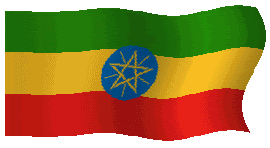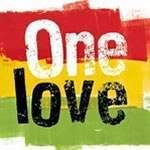Greetings
Amharic: Tenaystilign? (How are you?)
The word tena means "health." If translated literally, it would mean, "May you have Health." Implicitly, it would mean, "May God give you health." To respond, one would say, Egziabeher Yimesgen, Dehena Negne. This means, "God be praised, I am fine."
Oromifa: To ask, "How are you?" in this language, say, Naguma, Fayuma or Naga, which are interchangeably used depending on regions or locations.
Typical Foods
Ethiopia's staple food is injera, a spongy bread made of a unique crop only grown in Ethiopia called "teff." Injera is baked in a clay pan and eaten with sauce made of either meat, ground grains, beans or vegetables. The following recipe for Misir Wat is served with injera, which you can buy from an Ethiopian market or restaurant. If you would like to make your own injera, get a recipe online and visit your local health food store to buy teff in the bulk grains section.
"A nation's culture resides in the hearts and in the soul of its people." ~Mohandas Gandhi
The word tena means "health." If translated literally, it would mean, "May you have Health." Implicitly, it would mean, "May God give you health." To respond, one would say, Egziabeher Yimesgen, Dehena Negne. This means, "God be praised, I am fine."
Oromifa: To ask, "How are you?" in this language, say, Naguma, Fayuma or Naga, which are interchangeably used depending on regions or locations.
Art and Music
Traditional Ethiopian art, such as paintings, are an expression of religion, especially the Greek Orthodox religion. Paintings have a medieval style and people are painted with large, almond-shaped eyes.
Ethiopia has a strong tradition of music. Popular music is played, but most musicians also sing traditional songs and most audiences choose to listen to both popular and traditional styles. Ethiopian music uses a unique modal system that is pentatonic, with characteristically long intervals between some notes. This creates a somewhat "unfinished" and anticipatory atmosphere to the music. Folk instruments include the masenqo (fiddle), washint (flute), kebero (drums) and krar (lyre). Many kids learn the lively and irresistible eskista dance, which is performed almost entirely with the shoulders.
Ethiopia has a strong tradition of music. Popular music is played, but most musicians also sing traditional songs and most audiences choose to listen to both popular and traditional styles. Ethiopian music uses a unique modal system that is pentatonic, with characteristically long intervals between some notes. This creates a somewhat "unfinished" and anticipatory atmosphere to the music. Folk instruments include the masenqo (fiddle), washint (flute), kebero (drums) and krar (lyre). Many kids learn the lively and irresistible eskista dance, which is performed almost entirely with the shoulders.
Holidays and Festivals
Ethiopian New Year's Day, Sept. 11
Victory Day, April 6
Labor Day, May 1
Victory Day, May 28: Celebrated as a victory day for the current government and also marks the Fall of Derg.
Christian festivals include Maskal, or the Feast of the Finding of the True Cross; Christmas; Timkat or Epiphany; and Good Friday according to the Coptic calendar. Christmas in Ethiopia is primarily a religious observance.
Muslim festivals include the ninth month of the Muslim calendar devoted to Ramadan, which is marked by fasting. The greatest Muslim feast of the year is 'Id Al Fatr, which celebrates the end of Ramadan. The 'Id al Adha is the feast marking Abraham's sacrifice.
Sports and Games
Victory Day, April 6
Labor Day, May 1
Victory Day, May 28: Celebrated as a victory day for the current government and also marks the Fall of Derg.
Christian festivals include Maskal, or the Feast of the Finding of the True Cross; Christmas; Timkat or Epiphany; and Good Friday according to the Coptic calendar. Christmas in Ethiopia is primarily a religious observance.
Muslim festivals include the ninth month of the Muslim calendar devoted to Ramadan, which is marked by fasting. The greatest Muslim feast of the year is 'Id Al Fatr, which celebrates the end of Ramadan. The 'Id al Adha is the feast marking Abraham's sacrifice.
Sports and Games
Ethiopians enjoy volleyball and basketball, with soccer being the most popular sport. Gebeta, a game of strategy, has been popular for hundreds of years. It is played using seeds or pebbles and a board with rows of cups.
Typical Foods
Ethiopia's staple food is injera, a spongy bread made of a unique crop only grown in Ethiopia called "teff." Injera is baked in a clay pan and eaten with sauce made of either meat, ground grains, beans or vegetables. The following recipe for Misir Wat is served with injera, which you can buy from an Ethiopian market or restaurant. If you would like to make your own injera, get a recipe online and visit your local health food store to buy teff in the bulk grains section.
"A nation's culture resides in the hearts and in the soul of its people." ~Mohandas Gandhi

















Here are the beginnings of some joyful family traditions in honor of your daughter. It is so much fun to read about her cultural roots and then see how she will grow and blossom in the DeTorres family unit.
ReplyDeleteEthiopia is filled with unique cultures and spirited people, what a combination.
ReplyDelete